Simon Amstell: ‘I had this wild, spiritual, sexual experience where I ended up excavating all the shame’
The comedian talks ageing, overcoming gay shame and entering his 'spirit hole'.
By Will Stroude
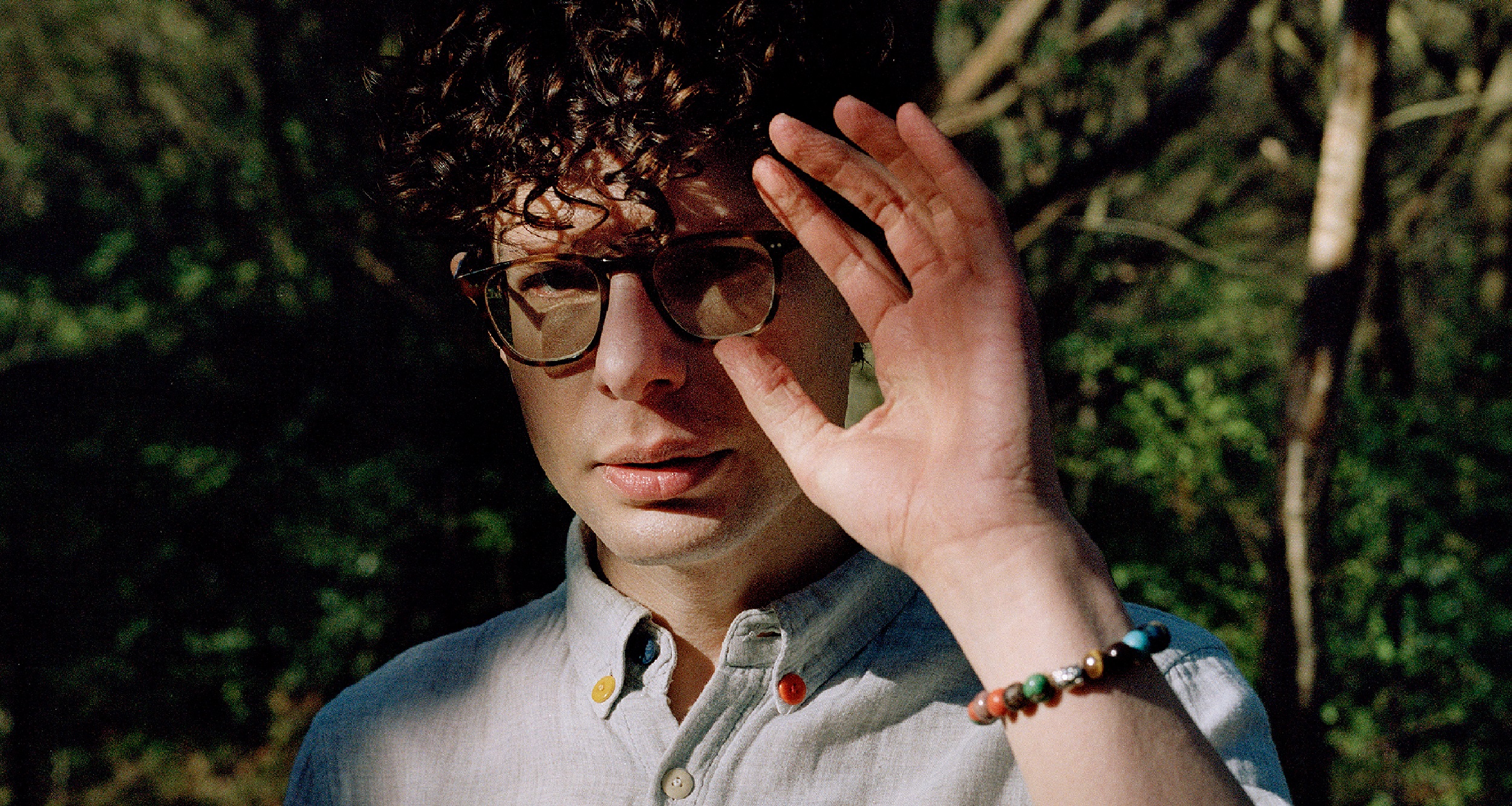
Words: Cliff Joannou; Photography: Harry Carr
This article appears in Attitude issue 345, March/April 2022
For Simon Amstell, the journey to finding calm began when he reached deep inside himself to release decades of shame and sexual repression. Quite literally, he fingered his bumhole. Granted, there’s more context to that story, but(t) we’ll come back to that.
It wasn’t the first time Simon had sought alternative therapies to clear his clouded mind, and it certainly wasn’t his first adventure into the Peruvian jungle in search of spiritual awakening. This most recent trip was sparked by his impending 40th birthday.
“It’s about getting older, and that being a major problem in this culture,” says Simon, when we meet for the interview in a small independent coffee shop in Kentish Town as he prepares for the second leg of his new show, Spirit Hole. “Even though people would say ‘You don’t look 40’, I was aware that sounded like a compliment. But what that meant was, ‘You don’t look 40 now, but when you do, that will be disgusting,’ because we’re in this sick culture where we’re sold anti-ageing products.
“If there was just a bit more honesty, the adverts would say, ‘Hey, we know that you’re terrified no one’s going to want to touch or look at you, but apply this serum daily and after a period of time you’ll die.’” In some parallel universe, Simon’s dream of a career in advertising is still yet to take off.
The biggest challenge Simon encountered was embracing ageing as an ‘adult man’. When he suggested to a friend that he might grow a beard, the friend warned that Simon would just look like a child in disguise. Instead, he opted to dye his hair blond. “You know when something’s so obviously a crisis, because no one mentions it,” Simon says of his awkward attempt to appear young and edgy. He also hired a personal trainer for the first time (“which was quite fun”) although Simon soon uncovered the fundamental flaw of his new plan. “What the personal trainer doesn’t tell you is you can get the muscles, that’s not a big problem. And you look at the mirror, you think, ‘This is very sexy.’ But you’ve still got the same head.”
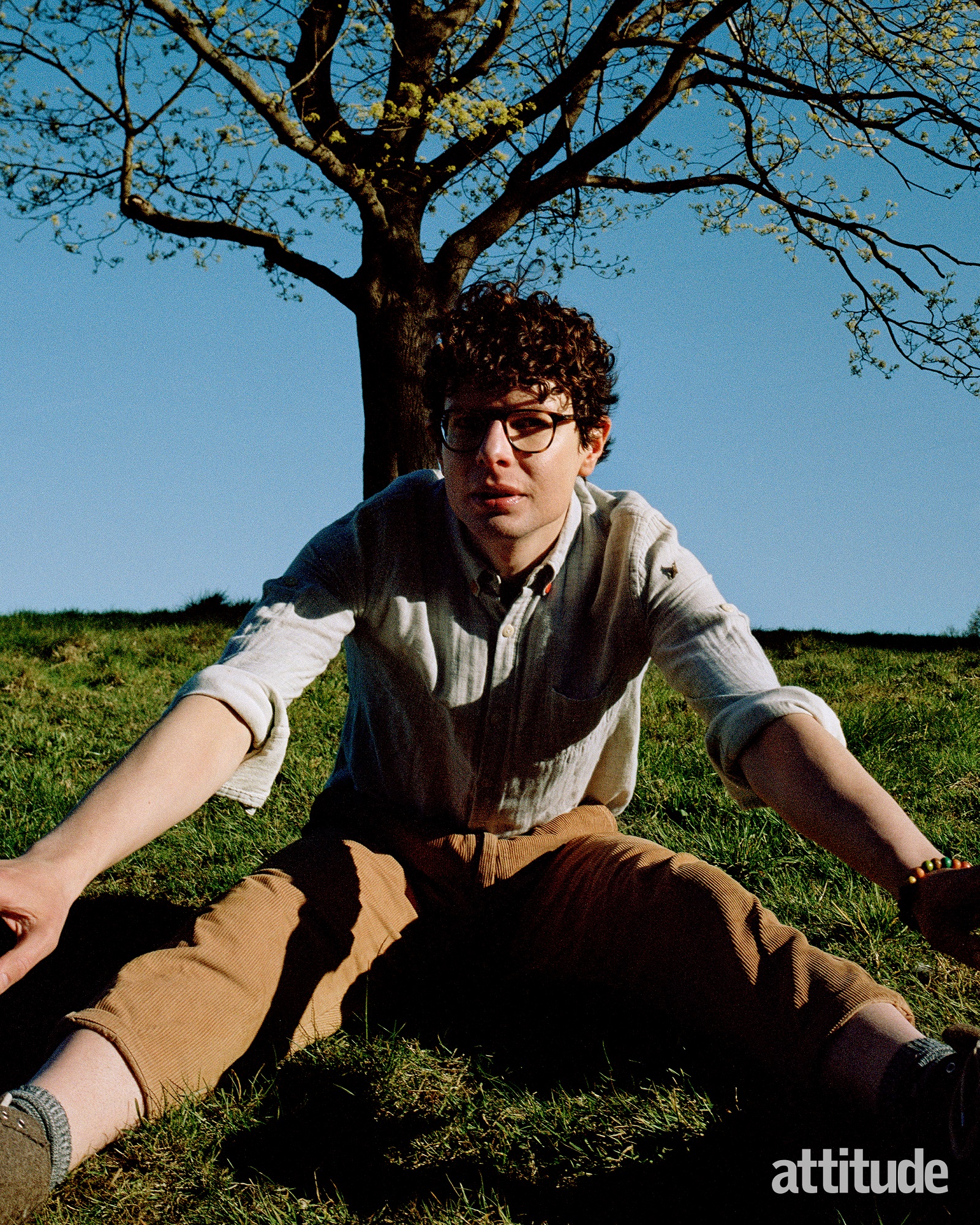
The ageing twink question placed Simon at a crossroads. “At 30, I was cheeky. You have to be fairly young for cheeky. Uncle Simon isn’t cheeky; uncle Simon is creepy. And grandpa Simon, he’s in prison. So, I guess there was a worry that I couldn’t carry on as I was.”
Change wasn’t just inevitable, it was fundamental to his development. “Essentially, I suppose, what ageing does is it forces you to let go of the defence mechanisms that you’ve been relying on thus far,” he says. “You realise you’re going to have to become a bit more authentic. All the stuff that you are relying on for survival isn’t going to work any more. Something else has to be born. And the only way for something new to be born is for something to die. And what’s going to die is going to be your past self. And that is terrifying because it’s kept you safe for this long.”
It’s a classic case of Peter Pan syndrome that is not unfamiliar to some men in the gay community. Without the normative milestones —getting engaged, married, having kids, watching them grow up, and so on — as queer people we have to actively seek out the changes that allow us to grow and develop in the ways that are right for us. Although same-sex couples can do all of the above now, it’s still not the norm.
This self-reflection highlighted Simon’s own relationship with his boyfriend of ten years, and what that meant for their future. “Beyond the terror of what I was supposed to look like next, I was also really scared of the responsibility of being in this long-term relationship and getting a house together and whatever may happen next,” he says. “I wasn’t sure whether I was supposed to be rejecting all of that and fully embracing my queerness. Or relaxing into something that just felt quite comfortable. I was caught between what felt like either becoming a sex maniac or someone sat at home upset about what used to be.”
Born to Jewish parents in Redbridge, east London, in November 1979, young Simon was a showman from an early age, having made several television appearances before making a name for himself as the cheeky presenter on Popworld who frequently had celebrities red-faced with his unabashedly direct questioning. It was a natural precursor to his celebrated run hosting pop-themed comedy quiz show, Never Mind the Buzzcocks.
When he left Buzzcocks in 2009, Simon entered a period of reevaluation as he began to unpick a mental state that was a polar opposite to the cheerful exterior he exuded on screen. Troubled by anxiety and depression, and with traditional talking therapy not quite doing the job of healing the cracks, Simon headed for Peru. His mission: to seek a more profound spiritual awakening with ayahuasca, a plant-based medicine, usually drunk in a ceremony over two nights, that encourages its participants to purge — both physically and emotionally — releasing past trauma. It did the trick.
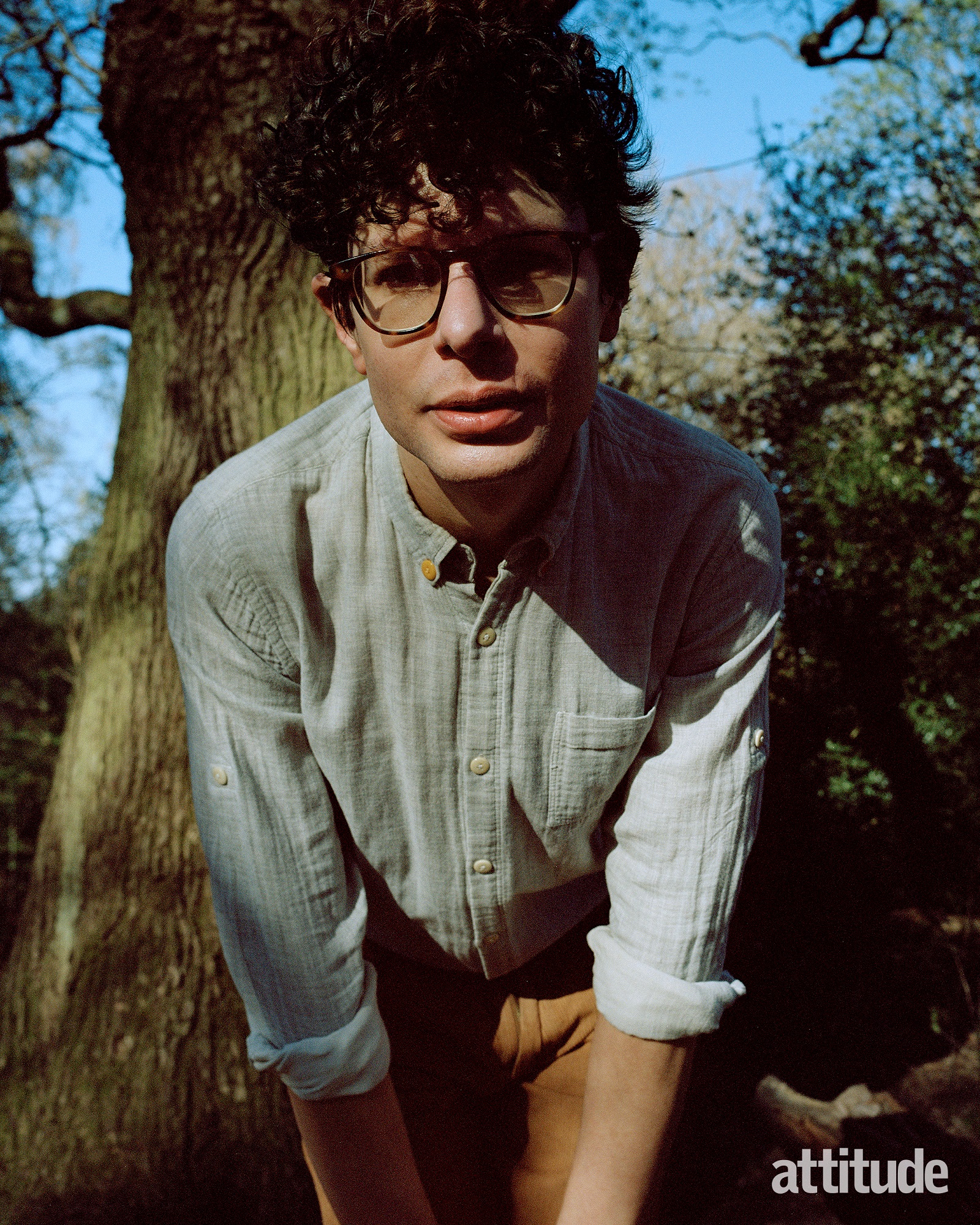
However, a decade later, ahead of his 40th birthday, anxious feelings began to creep back in, and Simon returned to Peru for a second ayahuasca ceremony. It’s there that he was able to work through the years of guilt that he’d been carrying. “I had this wild, spiritual, sexual experience where I ended up excavating all the shame in my body by entering what I came to know as my spirit hole. I found myself being called to take all of my clothes off. If you don’t surrender to the medicine, then you are fighting and you end up having a terrible time, and we’ve been taught on this retreat to surrender fully, which is an incredible lesson for all of life, really.”
It’s this second ceremony that allowed Simon to explore the deepest recesses of his mind — via his anus. “Once I was naked, I felt my finger beyond my control moving towards my perineum, where as I pressed my finger in — and I must emphasise this is all beyond my control — I have a vision of a new hole opening up. And as I press my finger in, I start making these loud orgasm sounds. Which is of course very embarrassing because I’m there with 20 other people.”
If a light fingering is all it takes to bring about metaphysical spiritual enlightenment, he’s most certainly not the first gay man to have ‘gone there’. (Whether intentional or not.) For Simon, it was a case of fully relinquishing the shame he’d been carrying around his sexual being. “It became very clear that what I was being asked was, ‘What’s more important to you, the shame that you are feeling or the pleasure that’s available?’ And I could see that if I kept reaching into the pleasure of what my body really wants, I will rid myself of all the shame that has ever been present. And I just kept ramming my finger in until all the shame was gone.”
It does beg the question why so many gay men are obsessed about sex “…and filling a hole?” Simon adds, before elaborating on the very British quirk of being obsessed with sex while being extremely uncomfortable talking about it. “I think whether you are gay or trans, or even if you are a heterosexual cis person, in this country specifically, we grow up repressing the sexual part of ourselves to a greater or lesser extent. There is this deep toxic repression, and we all grow up with it.”
Simon’s Peruvian rump rummage was more than just an explosion of pent-up sexual energy, but the opening of his eyes to how he had denied himself one of nature’s most basic pleasures. “My relationship with sex is incredibly healthy because I’ve embraced it as something completely natural, as something that I need as much as I need to drink water every day,” he says. “Maybe not as much as that.”
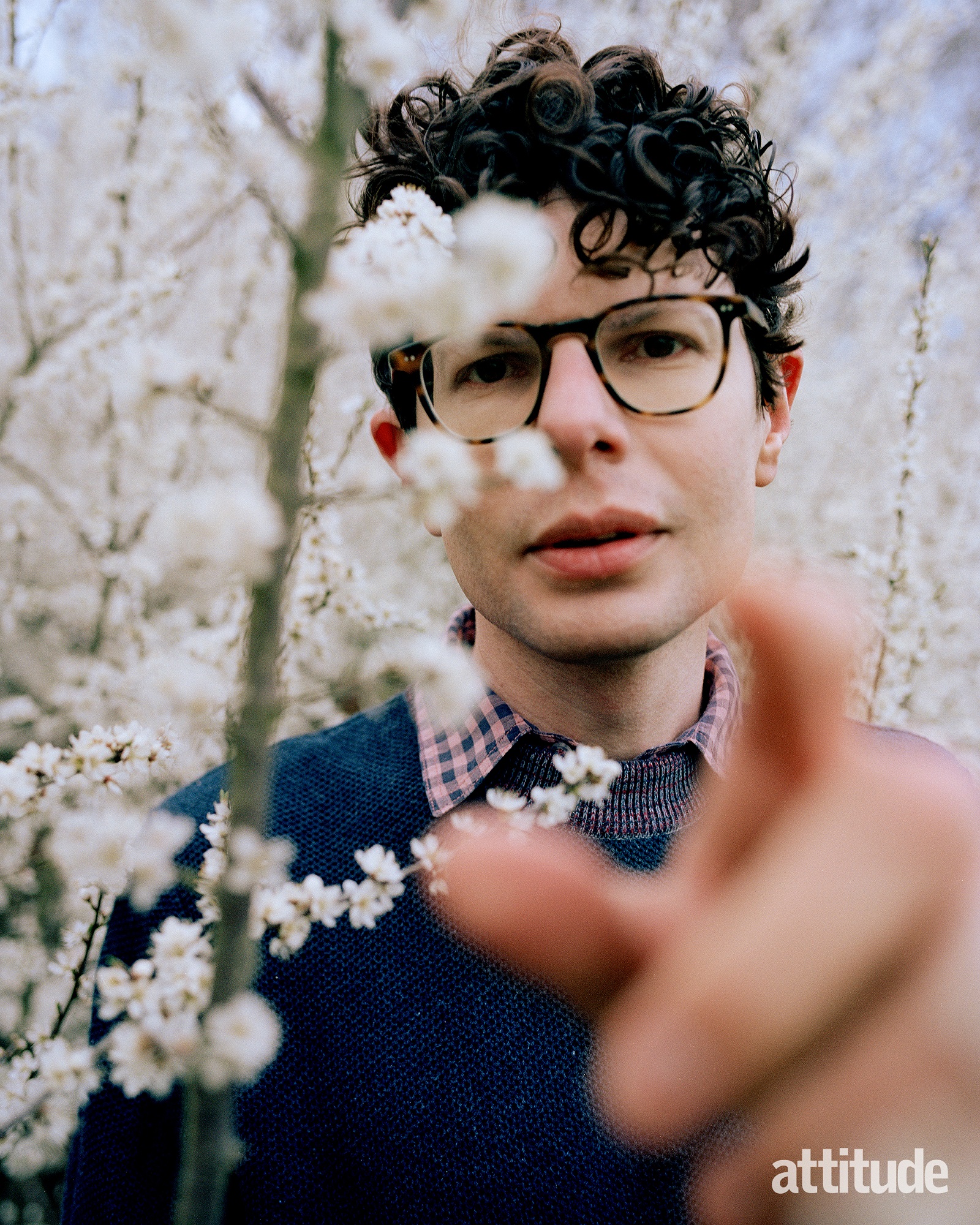
Ayahuasca wasn’t Simon’s first foray into the world of alternative therapies. His first step began about 12 years ago after he bought some magic mushrooms in Covent Garden, “one summer when they were legal”. At the time, he didn’t understand the meaning of ‘mushroom medicine’, as he and others refer to it now.
“I was able to feel this joy and ease that I hadn’t felt before,” he recalls of that first trip. “I walked away from the park that day being like, ‘Oh my goodness, maybe I could just feel like this forever.’ And then of course they became illegal again. And my goody-goody self couldn’t bring myself to do anything naughty or illegal.”
When the pandemic took grip and lockdown began, Simon got in contact with someone who was able to provide him with magic mushrooms, which gave him a huge amount of relief from the stresses and anxieties that came with Covid. Today, he takes them in a very ritualistic manner, setting ‘intentions’ at the beginning — such as setting hopes or giving thanks. “I know exactly what I’m asking for and what I’m doing,” he says assuredly. “I feel incredibly grateful. I know how long the ceremony is going to last. I know how to create a peaceful setting. And they always seem to provide everything my body requires at that point.”
In Benjamin, a film directed by Simon that is not quite autobiographical, but which has clear parallels to his own life experiences, the characters take mushrooms together and have a delirious experience that brings them closer. For the lead character, Benjamin, who suffers from all kinds of anxiety, it becomes a respite from his constant questioning: “After the mushrooms, Benjamin reverts back to his normal loony self. But then by the end of the film, you see the possibility of freedom again for him.”
Sat across the table from me, Simon’s infectious smile widens and his eyes brighten as he laughs, his trademark dark curls poking through a beanie hat. I share how on my way to meet him for our interview, a newspaper article flashed up on my newsfeed about how one of the big pharma companies is currently engaging in studies using MDMA to treat depression. Ketamine therapy is also not new, neither are the recognised medicinal benefits of cannabis. (It should be noted that the use of these substances is conducted under controlled circumstances with drugs formulated for their safety, and not sourced from a dodgy dealer you might find in a nightclub.)
“If you do it in a safe setting with people that you trust and love, it creates this level of intimacy which I didn’t know was possible before I took MDMA,” says Simon. “It’s been used in couples counselling. Ecstasy originally was called empathy. So, in this country, it’s also illegal to have empathy.” You only have to look to the current government to corroborate that observation.
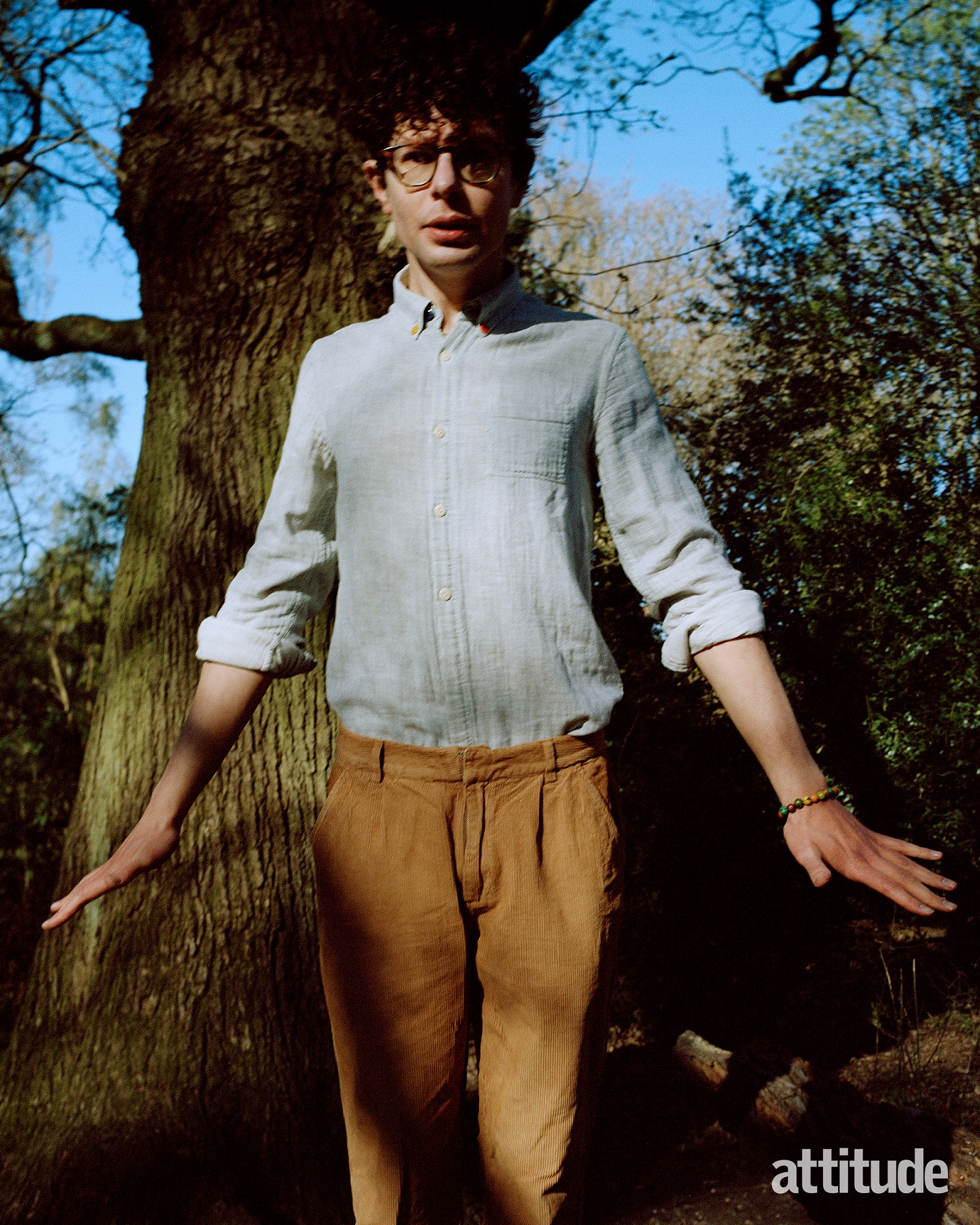
It is perversely ironic that while alcohol — widely regarded as a depressant — is freely available from corner shops or delivered to your door via a phone app, substances that aren’t enablers of fist fights outside pubs after closing time and essentially at worst encourage mass hugging remain illegal.
“I guess it’s a result of capitalism,” Simon muses. “People who are happy don’t need to avoid their feelings with buying products.”
Another form of self-therapy that Simon indulges in is talking to his child self, something he’s done for a while now. And yes, even after all these years, he stills gets a response on those rare occasions when Big Simon knocks on Little Simon’s door to check in on himself. “It’s more that he’s satisfied now. He doesn’t need to call as much these days,” he says of the reflective conversations with himself. “I have a very clear relationship with my younger self now. And I really understand when I’m triggered by something. It normally isn’t the thing that’s happening in the moment, it’s some kind of memory that’s coming up that I haven’t dealt with properly.
“I’m able to spot something quite quickly. And then I talk to myself: ‘What is this pain? What is this confusion? What is this anxiety?’ And then the child seems to answer and says, ‘Oh, this is about what happened when I was six.’ And I go, ‘Oh, I’m sorry, that must have been really hard for you.’ And that’s all he needs to hear. He goes, ‘Yeah, it was, thanks for listening.’ Having that dialogue, it’s incredible. Because if you don’t listen, they start screaming. And what we tend to do is ignore that kid, and get drunk in a ditch somewhere to shut him up.”
Simon continues, paraphrasing the physician, author and renowned addiction expert Gabor Maté, who wrote how children need two things. The first, he says, is to be loved. “Because if you’re not loved, then you won’t get fed or clothed. You’ll ultimately die. If you don’t hug a baby, it dies.
“The other thing that all children need is authenticity, to be able to be their authentic self. But what tends to happen is we get a sense that our authentic self is not going to be accepted for whatever reason. And so we ditch our authentic self because we need the love. What that means is you have to go find them again, you have to get back in contact with your natural, instinctive, beautiful self. Because at some point you felt that you had to push it away in order to carry on being loved.”
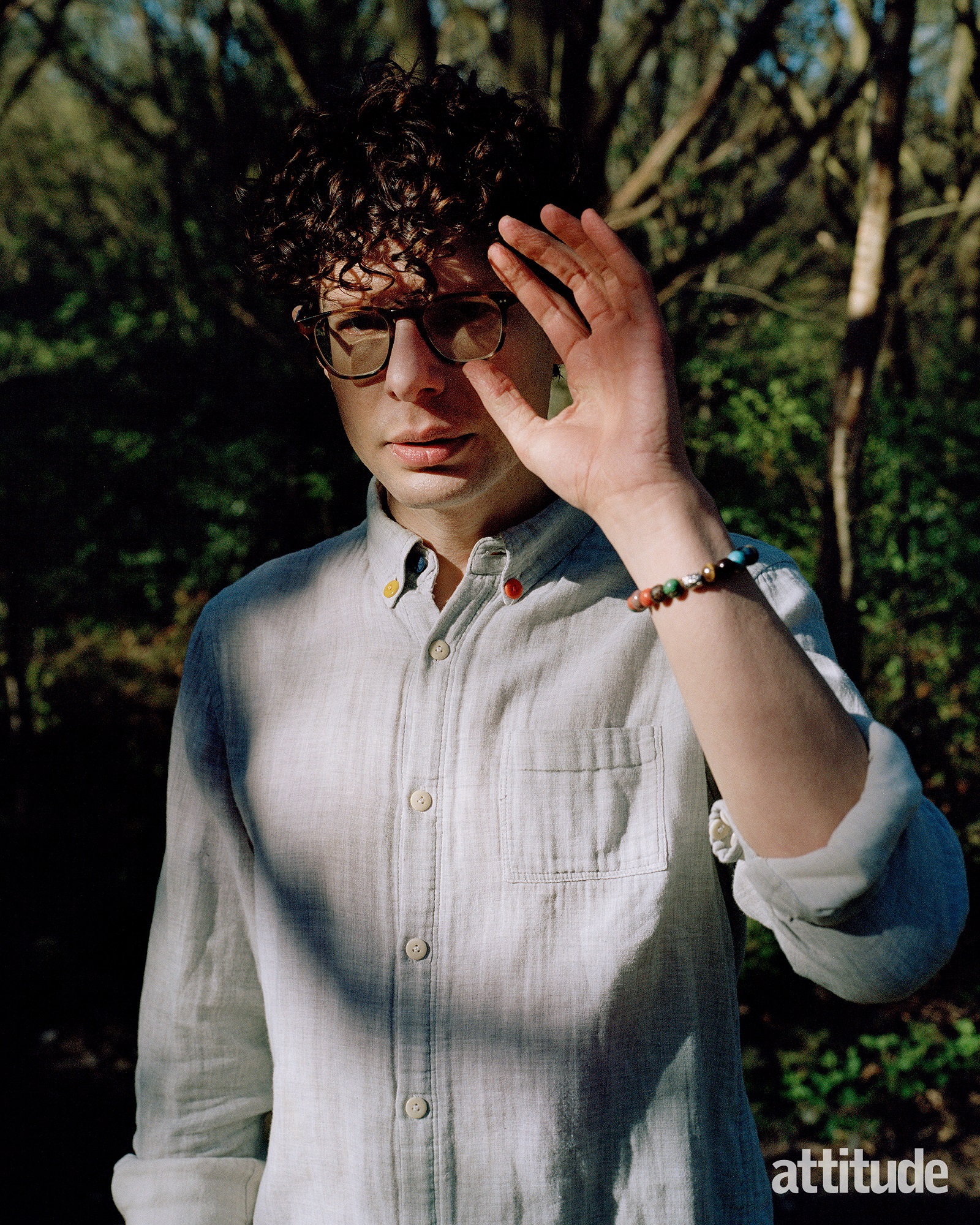
While on his own path to healing, Simon’s relationship with his boyfriend of ten years has also been rejuvenated. “We’ve both been on a journey to figure out exactly what we want the relationship to be. Because we’re all hardwired to be like Mummy and Daddy. Which for me is marry, have an affair, divorce. So that’s not ideal,” he says. “Do we embrace something normal? Or what are we after? Not what anyone wants for us, but what do we, as individuals in this relationship, with autonomy, in touch with our own instinct, like? And the only way we’ve been able to figure that out is by being really honest with each other and discussing everything all the time.”
The pair have found that the simple matter of honesty is key to the success of their relationship: “I think what we’ve learned over and over again is: the truth sets you free. Every time.”
It’s taken time and patience to find what some might flightily refer to as ‘inner peace’, a journey that has seen Simon delve into his inhibitions in order to release his uninhibited mind, both emotionally and sexually. “Happiness is about feeling connected with who I actually am and the people around me and what I actually want,” he reflects wistfully when prompted to describe how he measures being happy. “That is the contentment from being fully embodied, from having integrity, from not trying to be loved for something other than your actual, authentic self.”
As he prepares to return to the stage with Spirit Hole, Simon has a renewed relationship with his career. “Comedy used to be all about validation, but now it’s more about connection. When it’s going well, I just feel really connected. And I feel like there’s this beautiful thing going on, or I’m doing something I love, and it’s being loved,” he says. “I just really love doing it. It’s just love going on in the room. It’s just love happening. And it’s wonderful.”
Simon Amstell’s stand-up tour, Spirit Hole, returns from May; simonamstell.com
